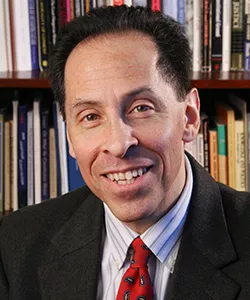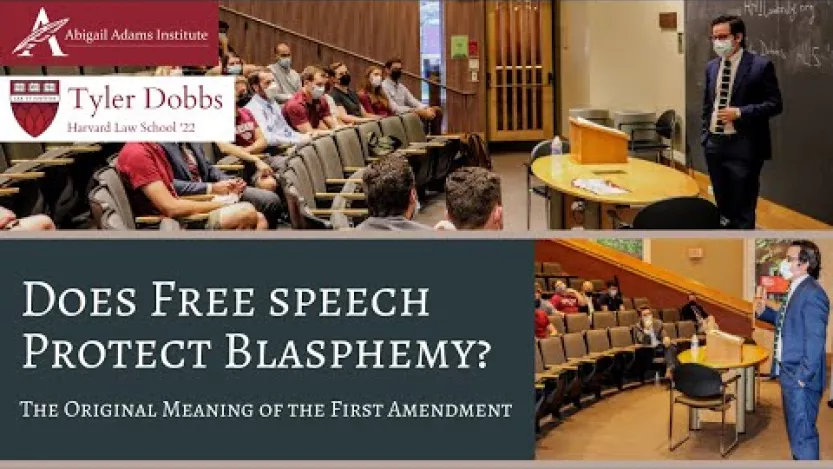The ACLU and other civil rights organizations are suing the state of Oklahoma over a law that prohibits certain types of instruction around race and gender.
Filed on October 19th in the U.S. District Court for the Western District of Oklahoma against the state’s governor, attorney general, and more than a dozen top education officials, the suit alleges that the law violates students’ and educators’ First and 14th Amendment rights.
HB 1775, which took effect in July, “severely restricts discussions on race and gender in Oklahoma’s elementary, secondary, and higher education schools without any legitimate pedagogical justification, using language that is simultaneously sweeping and unclear,” the suit alleges.
“The Act’s vague, overbroad, and viewpoint discriminatory provisions leave Oklahoma educators with an impossible — and unconstitutional — choice: avoid topics related to race or sex in class materials and discussions or risk losing their teaching licenses for violating the law,” the complaint reads.
Oklahoma is one of five GOP-controlled states that have passed laws limiting how teachers can instruct around matters of race and gender. Iowa, New Hampshire, Tennessee, and Idaho have also passed similar laws.
→ Lead counsel for plaintiffs: Megan Lambert. ACLU Foundation of Oklahoma
→ Video clip here
FIRE files lawsuit defending professor who criticized Pence & campus COVID response
This from FIRE:

- FIRE files lawsuit on behalf of Lora Burnett, a former Collin College professor, fired for tweets that criticized then-Vice President Mike Pence and the college’s leadership during the pandemic.
- In private text exchange with a Texas state legislator upset about Burnett’s tweets, the college president promised to ‘deal with it’ — then terminated her.
[. . .]
Former history professor Lora Burnett filed a lawsuit today against Collin College, its president, H. Neil Matkin, and other university officials for firing her for speaking out on important public issues. Represented by the Foundation for Individual Rights in Education, Burnett seeks to vindicate her First Amendment right to speak out as a private citizen on matters of public concern.
Collin College declined to renew Burnett’s contract on Feb. 25 after she publicly criticized former Vice President Mike Pence and the college president’s response to the COVID-19 pandemic.
“Professors like me shouldn’t lose our jobs just because we have opinions,” Burnett said. “In the classroom, my job is to teach the material and to hold open a space where students can freely express themselves and fully engage with the ideas we’re talking about. Outside the classroom, I have the right to express myself too. I have the right to fully engage with any public debate. That right is for all of us, not just for professors whose politics match up with their college administrators.”
During last October’s vice presidential debate, Burnett tweeted: “The moderator needs to talk over Mike Pence until he shuts his little demon mouth up.” The tweet was picked up by conservative media outlets highlighting faculty members’ reactions to the debate.
The tweet outraged Texas State Rep. Jeff Leach, who texted Matkin to ask if Burnett was “paid with taxpayer dollars.” Matkin responded that Burnett was “[a]lready on my radar” and he would “deal with it.”
Burnett landed on Matkin’s radar again in January when she criticized the college president’s response to the COVID-19 pandemic. Burnett challenged Matkin’s earlier assessment that the pandemic was “blown utterly out of proportion,” by adding commentary about a former Collin College professor’s death. She tweeted: “Another @collincollege professor has died of COVID.”
During this time, FIRE wrote repeated letters to Collin College advising the school of Burnett’s rights and reminding the college of its constitutional obligations. Public institutions like Collin College are bound by the First Amendment, and it is unconstitutional to terminate a faculty member based on her comments about matters of public concern.
Meanwhile, the college spent $14,000 on legal fees seeking to conceal the text exchange between Matkin and Leach from the public. The college lost that battle. Leach tweeted on Feb. 16 that Burnett’s termination was a “BIG WIN” — before Burnett had even been fired. When he learned that his announcement was premature, he tweeted an image of a ticking clock to indicate that her time as a Collin College professor was running out.
Nine days later, the college notified Burnett that her contract would not be renewed, citing “insubordination, making private personnel issues public that impair the college’s operations, and personal criticisms of co-workers, supervisors, and/or those who merely disagree with you.”
[. . .]
“It seems as though Collin College is surprised to learn that, like the rest of us, professors have thoughts on the issues up for public debate,” said FIRE attorney Joshua Bleisch. “The First Amendment ensures they can share those opinions, even if Collin College prefers they stay silent.”
JT Morris is serving as local counsel for the lawsuit.
→ Video clip here










